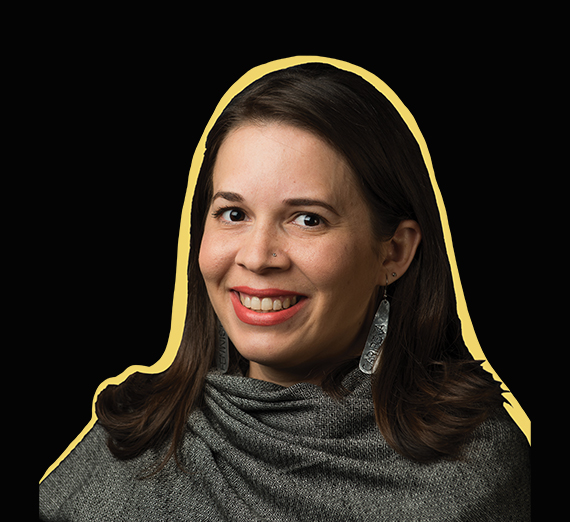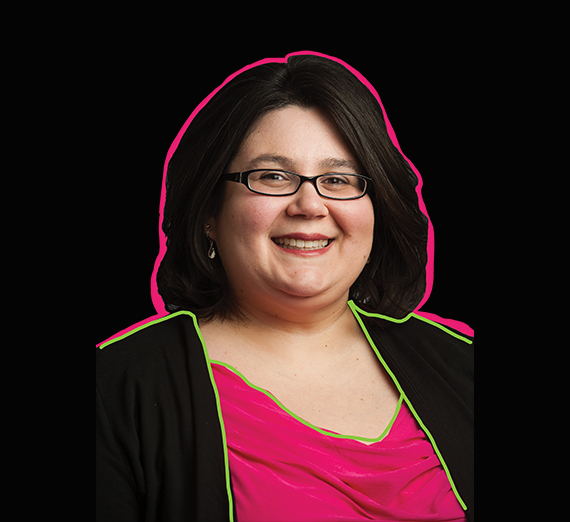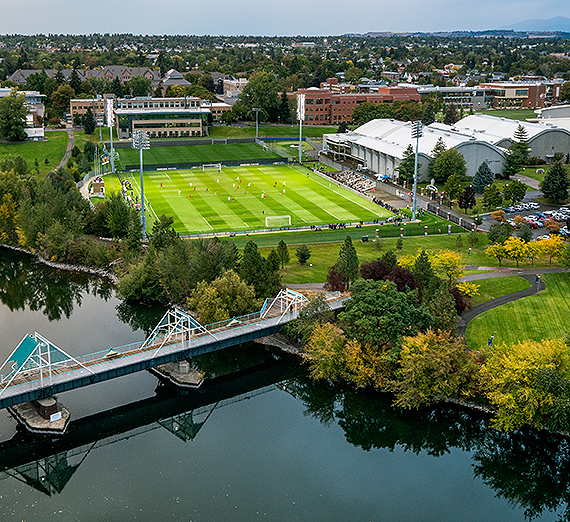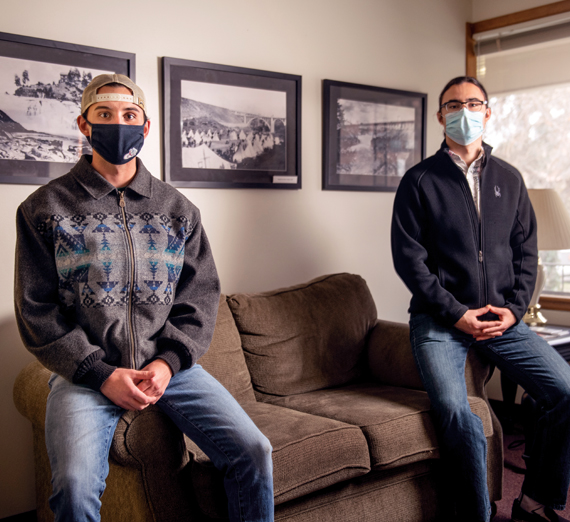IDEAS in Action focuses on creating a more equitable, inclusive, and diverse environment in the College of Arts and Sciences. We explore creative solutions and act upon them. Yet, while we focus on College operations, policies, and procedures, we recognize that what we do may impact other units and that there are policies, procedures, and practices in place in the Provost’s Office, HR, and other entities that also govern our work.
We also recognize the power of collaboration and work with other units across campus, including the Office of Inclusive Excellence, the Center for Teaching Advising, University CoreUnity Multicultural Education Center, and others.
Our project teams continue to work toward goals in Curriculum & Course Design, Diversity in STEM Undergraduate Programs, and Faculty & Staff Recruitment & Retention. Learn more about their work below.
Project Update Details
Curriculum & Course Design:
- David Boose and Mia Bertagnolli organized and led the first Equity-Minded Teaching Co-Lab during the summer of 2021, and the first cohort in this year-long initiative continued to meet throughout the academic year. We hope to continue this program in the future.
- Representatives from our subcommittee have met with the Unity Alliance of Cultural Clubs (UACC) to share information and open dialogue about student concerns relating to equity-minded classrooms, diversity, and inclusion in course design and the CAS curriculum.
- Subcommittee member Amy Anderson produced a DEI Checklist to be used by instructors as a tool to prompt reflection on how equity-minded our courses are, and to encourage self-conscious DEI practices and design in course planning and teaching.
- We are beginning to produce publicly-facing media to express student’s views on the importance of DEI practices in classrooms and curricula to their learning experiences, and to share how faculty have incorporated such practices in their teaching and course design.
- We have been developing DEI-focused learning objectives for the dual purpose of articulating shared goals across the CAS curriculum and mapping syllabi and instructional activities to ensure that courses are to achieve those goals.
- Finally, we have been working to link the GU Mission Statement, the newly-approved Baccalaureate Learning Goals, and CAS and course-level DEI learning objectives into a unified structure.
We continue to be committed to identifying and implementing DEI practices, perspectives, and outcomes in course design and curriculum across the College.
Diversity in STEM Undergraduate Programs:
STEM has three main areas of focus that we are committed to for academic year 22-23: 1) Building stronger sense of community in STEM, 2) supporting academic success, and 3) increasing research opportunities.
- Focus #1: We continue to work towards finding a dedicated space for the SACNAS group (Society for the Advancement of Chicanos/Hispanics and Native Americans in Science). This summer, we are actively working with department chairs to identify and hopefully secure a suitable space.
- Focus #2: We have coordinated with BRIDGE (Building Relationships in Diverse Gonzaga Environments) to continue our cohort model for building community and improving academic success by enrolling BRIDGE STEM students into the same first year biology and chemistry courses.
Additionally, Chem/Biochem will be holding a learning strategies workshop during the fall. Sarah Siegel piloted this during the Spring and it was very effective. - Focus #3: With Dr. Cravens-Khare returning from maternity leave, we are excited to announce the return of the SciMix Research Recruitment event. And this Fall, events will be expanded to include Biology in addition to Chemistry & Biochemistry faculty.
Faculty/Staff Recruitment & Retention
Recruitment:
- All CAS faculty search committees used the materials developed by IDEAS in Action in the prior year to write more inclusive position descriptions and engage in broader outreach to advertise their positions, including notifying affinity groups in the disciplines. Dean Caño returned descriptions for revision when necessary. In addition, Dean Caño required rubrics to be created that were aligned with the position descriptions so that the review and selection processes were transparent and to minimize individual biases that commonly and often unintentionally creep into selection.
- Three searches had the assistance of trained equity or search advocates who participated in trainings. An additional four faculty and staff were trained this past year, funded in part by CAS and the Office of Inclusive Excellence.
Retention
- Dean Caño continues to fundraise and commit gift and restricted funds to recruit and retain a diverse group of faculty and staff:
- In Spring 2022, Dr. Shalon Parker (Art) served as a CAS Faculty Fellow to conduct listening sessions with early career faculty (URM postdocs, lecturers, and tenure-track professors) to document needs for their support and success. The fruit of her labor is a recommendations document that will be used to develop professional and career development programming in the College that includes attention to diverse needs of faculty from groups that have been marginalized in academia.
- In Summer 2022, 3 faculty fellows, all of whom who have participated in IDEAS in Action, are working on projects related to retention of diverse faculty. Drs. Leslie Stamoolis (Theatre & Dance) and Naghme Morlock (Sociology & Criminology) are working on an inclusive onboarding/orientation project to build community and knowledge for incoming faculty. Dr. Melissa Click (Communication Studies) is working on building on Dr. Parker’s work to create a mentoring program for new faculty. All three fellows will be collaborating with other units including HR, Office for Diversity and Inclusion, and Center for Teaching and Advising.
On January 29, 2021, the College of Arts & Sciences joined together to discuss its IDEAS in Action Council and the road ahead. Watch the Town Hall Meeting here.
Summer 2021 Update
This summer, the Curriculum & Course Design Committee worked with the Center for Teaching and Advising to create an equity-minded teaching co-lab. The co-lab is a community of 18 faculty from across the university working together to make specific changes that promote equity-mindedness in their courses.
With the guidance of our Faculty/Staff Recruitment & Retention Committee, the College of Arts and Sciences will implement the Search Advocate program for the first time on several tenure track faculty searches.





